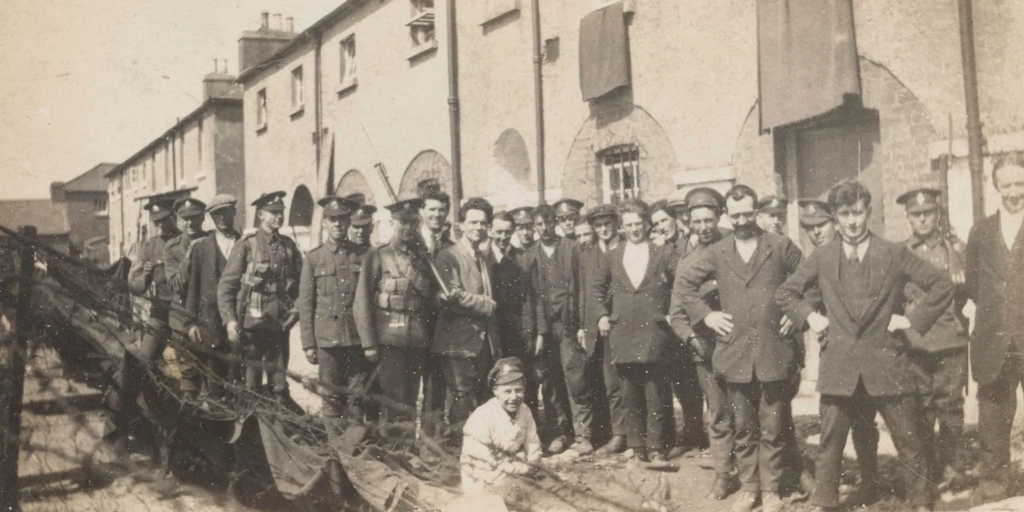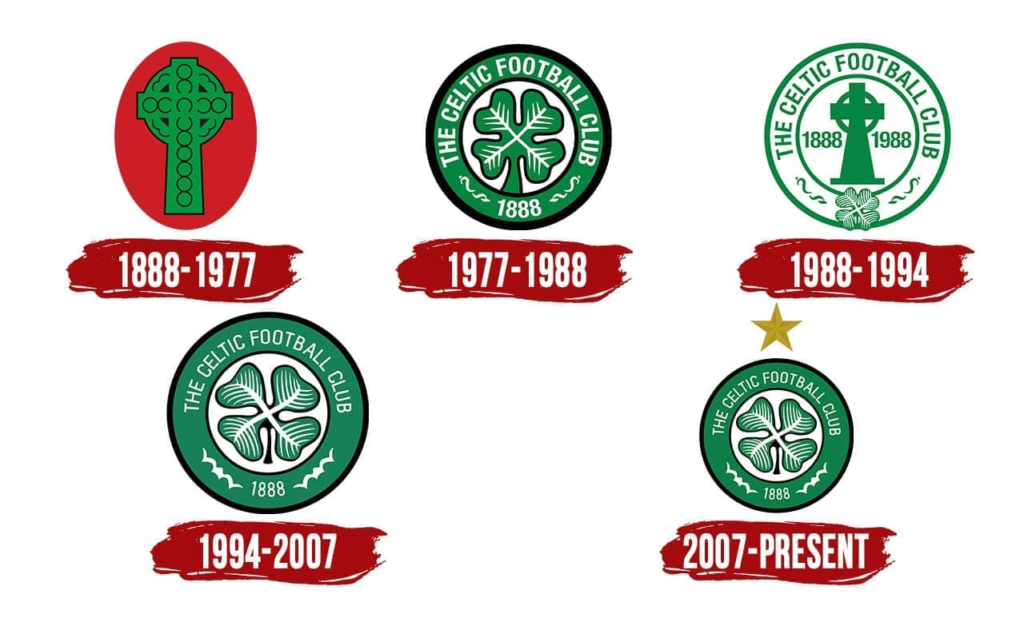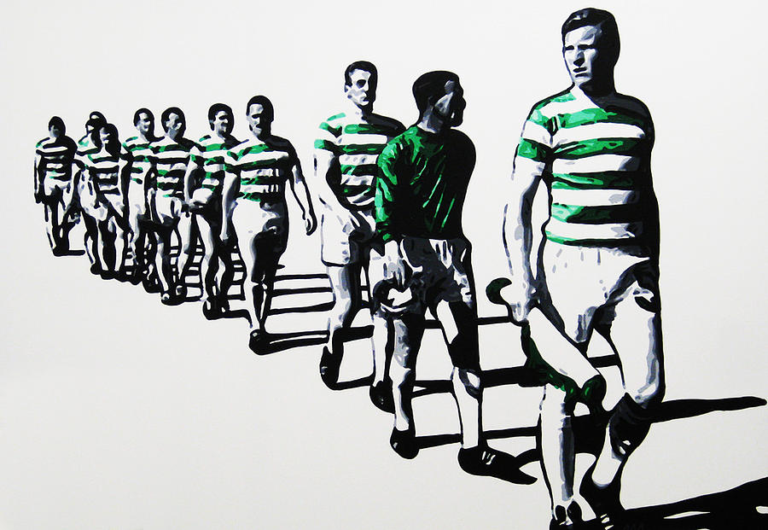The Founding of Celtic FC and Irish Connections

Celtic Football Club was founded in 1887 in Glasgow, Scotland, as a means of providing aid to impoverished Irish immigrants. Its founder, Brother Walfrid, was a Catholic priest from Antrim, Ireland, who had moved to Scotland. His mission was to use football as a tool to support the Irish immigrant community economically and socially. In the late 19th century, many Irish had fled to Scotland to escape English oppression, particularly during the Great Famine. Celtic FC was established to alleviate the struggles of these immigrants and help them integrate into society.
The club’s green and white colors symbolize its Irish identity and Catholic faith, while the name “Celtic” reflects its ties to Irish history and culture. Celtic’s founding wasn’t just about football victories, but also about creating a platform for social solidarity—a legacy that remains a central part of the club’s identity today.
Celtic’s Achievements

Celtic Football Club is not only known for its social and cultural significance but also for its achievements on the field. The club has won numerous national and international trophies, making it one of the most successful teams in Scottish football history.
Celtic’s most notable achievement came in 1967 when they became the first British team to win the European Cup, defeating Inter Milan in the final. This victory earned the team the nickname “The Lisbon Lions” and cemented Celtic’s reputation on the international stage.
Domestically, Celtic has won over 50 Scottish league titles, along with numerous Scottish Cups and League Cups. In the 2016-2017 season, the club achieved an undefeated domestic treble, winning the Scottish Premiership, Scottish Cup, and Scottish League Cup—a remarkable feat in Scottish football.
Internationally, Celtic has continued to be a respected team in European competitions, reaching the UEFA Cup final in 2003.
Fleeing English Oppression and the Mission of Celtic

For centuries, Ireland was subjected to harsh British rule, leading to widespread poverty and displacement. During the 19th century, many Irish Catholics moved to Glasgow to escape economic exploitation and social persecution in Ireland. The Irish in Scotland often faced challenging conditions, including low-wage labor and social exclusion.
Celtic’s creation served as a beacon of hope for this immigrant community. Brother Walfrid and his fellow founders aimed to unite people through football and generate income for the poor. The club’s revenues were directed toward assisting impoverished families, emphasizing Celtic’s deep commitment to social justice.
The Old Firm Derby and Religious Division

Celtic’s rivalry with Glasgow Rangers reflects deep-rooted religious and social divides in Scottish society. While Celtic represents the Irish Catholic community, Rangers is associated with the Protestant establishment. The “Old Firm Derby” is not only a significant football rivalry but also symbolizes the broader sectarian tensions within Scottish society.
Celtic Culture and Fan Support

Celtic fans are known for their passionate support and strong sense of social justice. On match days at Celtic Park, the stadium becomes a sea of green and white as fans sing “You’ll Never Walk Alone.” The supporters’ group, “Green Brigade,” is particularly noted for its choreographed displays and social activism.
One of the most striking examples of Celtic fans’ political engagement is their support for Palestine. In 2016, during a match against Israel’s Hapoel Be’er Sheva, Celtic fans displayed Palestinian flags to show solidarity with the Palestinian cause.
Celtic Park: Match Day Rituals and a Cultural Icon

Celtic Park, one of the largest stadiums in Scotland, is more than just a venue for football; it’s a cultural hub for Celtic supporters. On match days, the atmosphere around the stadium is electric, with fans gathering for celebrations and demonstrations of their loyalty to the club’s values. Many fans also take the opportunity to raise awareness about social justice issues, reinforcing the club’s ethos of solidarity and activism.
Fans see match days not only as an opportunity to watch football but also as a chance to strengthen their ties with Celtic’s history and values. Supporter groups gather around the club before and after matches to participate in awareness-raising activities related to social issues. This sense of social solidarity and belonging is among the elements that enhance Celtic’s greatness and cultural impact.
Celtic’s Social and Political Stance

Throughout its history, Celtic has remained committed to social justice and equality. The club’s origins in the Irish immigrant community continue to influence its identity, and Celtic frequently engages in charitable and community-driven initiatives. The support for Palestine is just one example of how Celtic, through its fans, takes a stand on global social issues.
Sources:
- www.celticfc.com/history/
- www.footballhistory.org/club/celtic.html
- www.listelist.com/celtic-kurulus-hikayesi/
- www.medium.com/@berkaycomert/eski%CC%87-sert-derbi%CC%87-old-fi%CC%87rm-derby-b8b091b351b
- www.bilgiustam.com/celtic-fc-nasil-bir-kuluptur/


